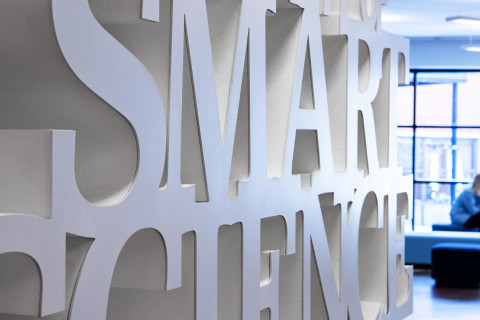The YUFERING project of the YUFE University Alliance has developed ways for universities to diversify researcher assessment.
Researcher assessment is in active development. The University of Eastern Finland (UEF), like other Finnish universities, is part of the Coalition for Advancing Research Assessment (CoARA). At UEF, responsible researcher assessment is seen as part of the broader development of researchers' careers.
In recent years, researcher assessment systems have been criticized for being one-sided, including critique for their emphasis on research success and metrics. The YUFE University Alliance's joint YUFERING project has developed ways for universities to diversify researcher assessment according to current priorities. The aim was to make the different aspects of academic work as well as the content and impact of the researcher's work more visible as part of academic recruitment processes.
Mentoring, participation in peer reviewing and societal interaction are examples of the dimensions of academic work that are important from the perspective of educating a new generation of researchers, advancing research, and promoting a dialogue between research and society. At the same time, they are also examples of aspects that are often overlooked in assessments.
UEF was primarily responsible for the recently published report: Report on the accreditation pilot based in Open Science criteria.
YUFE Researcher Assessment Portfolio
The activities of the universities of the European YUFE Alliance are determined by each country's legislation, funding systems for universities, research, and higher education, and national research and higher education policy objectives. YUFE universities manage their recruitments according to their own strategies, with the principles of legislation and responsible assessment considered. Nevertheless, European cooperation brings many benefits to the development of researcher assessment. European calls for research funding emphasise, for example, the diversification of researcher profiles and academic merits, such as including societal interaction and open science in the assessment.
The project identified key areas of academic work at YUFE universities where the researcher's performance should be identified: research, teaching, societal interaction, and teamwork and leadership. The researcher’s merits in these areas serve as the core of the YUFE researcher assessment portfolio model developed in the project. The portfolio model is structured flexibly so that each recruitment can focus on the competence areas that are relevant to the position. The competence areas to be evaluated reflect the requirements of the position.
In contrast to traditional academic CVs with list-based information of the researcher, the portfolio model allows researchers to highlight their strengths, skills, and motivations. The achievements must be presented through concrete evidence. However, the portfolio model is not intended to replace but to complement the documentation already used in the assessments.
Piloting in YUFE Postdoctoral Recruitment
The YUFE Academic Assessment Portfolio developed in the project was piloted in the YUFE4Postdocs call. YUFE4Postdocs is a training programme for postdoctoral researchers funded in part by the Marie Skłodowska-Curie Programme of Horizon Europe. The programme funds a total of 51 postdoctoral researchers at nine YUFE universities.
Feedback on the pilot was collected as part of a survey aimed at experts who participated in the first two selection committees of the program. The committees included both academic members and societal stakeholders.
Overall, feedback from the experts was quite positive. The portfolio model was considered as easy to assess as the traditional curriculum vitae, if not easier. Most reviewers found the portfolio model’s perspective of comprehensive assessment useful or very useful. In this recruitment process, the researcher's skills, strengths, and future career prospects, as well as the achievements in societal interaction were considered the most important aspects of the assessment.
The YUFERING project report can be downloaded here: https://doi.org/10.5281/zenodo.10640319.





